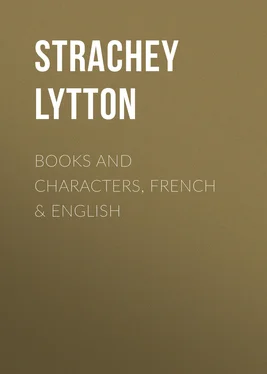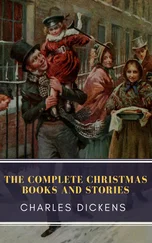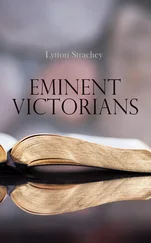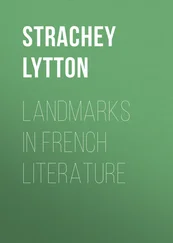Lytton Strachey - Books and Characters, French & English
Здесь есть возможность читать онлайн «Lytton Strachey - Books and Characters, French & English» — ознакомительный отрывок электронной книги совершенно бесплатно, а после прочтения отрывка купить полную версию. В некоторых случаях можно слушать аудио, скачать через торрент в формате fb2 и присутствует краткое содержание. Жанр: Биографии и Мемуары, Языкознание, foreign_antique, на английском языке. Описание произведения, (предисловие) а так же отзывы посетителей доступны на портале библиотеки ЛибКат.
- Название:Books and Characters, French & English
- Автор:
- Жанр:
- Год:неизвестен
- ISBN:нет данных
- Рейтинг книги:3 / 5. Голосов: 1
-
Избранное:Добавить в избранное
- Отзывы:
-
Ваша оценка:
- 60
- 1
- 2
- 3
- 4
- 5
Books and Characters, French & English: краткое содержание, описание и аннотация
Предлагаем к чтению аннотацию, описание, краткое содержание или предисловие (зависит от того, что написал сам автор книги «Books and Characters, French & English»). Если вы не нашли необходимую информацию о книге — напишите в комментариях, мы постараемся отыскать её.
Books and Characters, French & English — читать онлайн ознакомительный отрывок
Ниже представлен текст книги, разбитый по страницам. Система сохранения места последней прочитанной страницы, позволяет с удобством читать онлайн бесплатно книгу «Books and Characters, French & English», без необходимости каждый раз заново искать на чём Вы остановились. Поставьте закладку, и сможете в любой момент перейти на страницу, на которой закончили чтение.
Интервал:
Закладка:
It is remarkable that Mr. Bailey, while seeming to approve of the classicism of Racine's dramatic form, nevertheless finds fault with him for his lack of a quality with which, by its very nature, the classical form is incompatible. Racine's vision, he complains, does not 'take in the whole of life'; we do not find in his plays 'the whole pell-mell of human existence'; and this is true, because the particular effects which Racine wished to produce necessarily involved this limitation of the range of his interests. His object was to depict the tragic interaction of a small group of persons at the culminating height of its intensity; and it is as irrational to complain of his failure to introduce into his compositions 'the whole pell-mell of human existence' as it would be to find fault with a Mozart quartet for not containing the orchestration of Wagner. But it is a little difficult to make certain of the precise nature of Mr. Bailey's criticism. When he speaks of Racine's vision not including 'the whole of life,' when he declares that Racine cannot be reckoned as one of the 'world-poets,' he seems to be taking somewhat different ground and discussing a more general question. All truly great poets, he asserts, have 'a wide view of humanity,' 'a large view of life'—a profound sense, in short, of the relations between man and the universe; and, since Racine is without this quality, his claim to true poetic greatness must be denied. But, even upon the supposition that this view of Racine's philosophical outlook is the true one—and, in its most important sense, I believe that it is not—does Mr. Bailey's conclusion really follow? Is it possible to test a poet's greatness by the largeness of his 'view of life'? How wide, one would like to know, was Milton's 'view of humanity'? And, though Wordsworth's sense of the position of man in the universe was far more profound than Dante's, who will venture to assert that he was the greater poet? The truth is that we have struck here upon a principle which lies at the root, not only of Mr. Bailey's criticism of Racine, but of an entire critical method—the method which attempts to define the essential elements of poetry in general, and then proceeds to ask of any particular poem whether it possesses these elements, and to judge it accordingly. How often this method has been employed, and how often it has proved disastrously fallacious! For, after all, art is not a superior kind of chemistry, amenable to the rules of scientific induction. Its component parts cannot be classified and tested, and there is a spark within it which defies foreknowledge. When Matthew Arnold declared that the value of a new poem might be gauged by comparing it with the greatest passages in the acknowledged masterpieces of literature, he was falling into this very error; for who could tell that the poem in question was not itself a masterpiece, living by the light of an unknown beauty, and a law unto itself? It is the business of the poet to break rules and to baffle expectation; and all the masterpieces in the world cannot make a precedent. Thus Mr. Bailey's attempts to discover, by quotations from Shakespeare, Sophocles, and Goethe, the qualities without which no poet can be great, and his condemnation of Racine because he is without them, is a fallacy in criticism. There is only one way to judge a poet, as Wordsworth, with that paradoxical sobriety so characteristic of him, has pointed out—and that is, by loving him. But Mr. Bailey, with regard to Racine at any rate, has not followed the advice of Wordsworth. Let us look a little more closely into the nature of his attack.
Читать дальшеИнтервал:
Закладка:
Похожие книги на «Books and Characters, French & English»
Представляем Вашему вниманию похожие книги на «Books and Characters, French & English» списком для выбора. Мы отобрали схожую по названию и смыслу литературу в надежде предоставить читателям больше вариантов отыскать новые, интересные, ещё непрочитанные произведения.
Обсуждение, отзывы о книге «Books and Characters, French & English» и просто собственные мнения читателей. Оставьте ваши комментарии, напишите, что Вы думаете о произведении, его смысле или главных героях. Укажите что конкретно понравилось, а что нет, и почему Вы так считаете.












